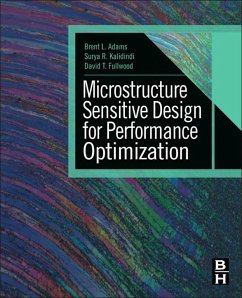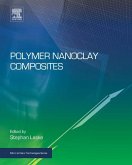The accelerating rate at which new materials are appearing, and transforming the engineering world, only serves to emphasize the vast potential for novel material structure and related performance.
Microstructure Sensitive Design for Performance Optimization (MSDPO) embodies a new methodology for systematic design of material microstructure to meet the requirements of design in optimal ways. Intended for materials engineers and researchers in industry, government and academia as well as upper level undergraduate and graduate students studying material science and engineering, MSDPO provides a novel mathematical framework that facilitates a rigorous consideration of the material microstructure as a continuous design variable in the field of engineering design.
- Presents new methods and techniques for analysis and optimum design of materials at the microstructure level
- Authors' methodology introduces spectral approaches not available in previous texts, such as the incorporation of crystallographic orientation as a variable in the design of engineered components with targeted elastic properties
- Numerous illustrations and examples throughout the text help readers grasp the concepts
Dieser Download kann aus rechtlichen Gründen nur mit Rechnungsadresse in A, B, BG, CY, CZ, D, DK, EW, E, FIN, F, GR, HR, H, IRL, I, LT, L, LR, M, NL, PL, P, R, S, SLO, SK ausgeliefert werden.









